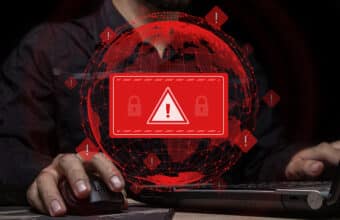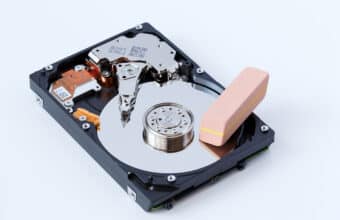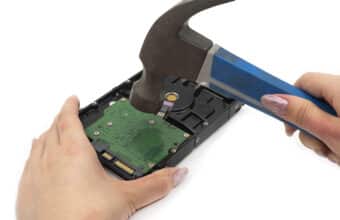News & Updates
-
4 Reasons to Re-Evaluate Your Shredding Needs in 2023
Most businesses have some form of document organization and destruction processes, but few have optimal shredding practices. Document shredding is key to any business — especially businesses that process sensitive documents. There are four reasons to re-evaluate your shredding needs in 2023. 1. Organization One of the primary reasons to invest in shredding in 2023 […]
Read More -
Document Destruction Policy Refresh: What Needs Updating and How Often?
If there’s one thing you want to make sure your business has nailed down, it’s your document destruction policy. A data breach can not only come with serious monetary consequences but also do irreparable harm to your organization’s reputation. With that being said, you don’t just want a strong, clear document destruction policy — you […]
Read More -
3 Risks of Zombie Computers (and How to Properly Dispose of Them)
For most businesses, networks offer many advantages that make it easier to manage your operations. However, there are risks that should be considered when connecting to the network. From trojans and viruses to spyware and ransomware, businesses have a lot to be wary of when making remote connections, and one of the biggest threats to […]
Read More -
Can Halogen Light Bulbs Be Recycled in Sioux Falls?
Halogen light bulbs are convenient for several reasons. For one, they are much less expensive than LED bulbs. In terms of energy efficiency, they are a much more conservative option than other incandescent bulbs. Unfortunately, halogen bulbs suffer from the same problem as any other light bulb – at some point, they burn out and […]
Read More -
Sanitize or Erase: Which Is Best for SSDs?
Solid state drives (SSDs) offer many benefits over their hard drive (HDD) counterparts. With faster read/write times, better performance, much quieter sounds, and lower power consumption, SSDs are, all-in-all, a powerful replacement for HDDs. In most situations, they can be treated similarly once it’s time to destroy or otherwise dispose of them. Still, when it […]
Read More -
What Is Asset Recovery?
IT asset management refers to ongoing operations that require paying continuous attention to finances, computing equipment, and other IT-related assets. Managing the supply chain is difficult enough without wasting valuable resources and leaving insecure data at risk of being stolen by malicious actors. Therefore, every piece of software and hardware that exists in the IT […]
Read More -
End-of-Life Data Destruction: What Is It and Who’s Responsible?
Digital information offers many benefits to today’s businesses. It gives leaders the knowledge they need to make informed decisions while also making it easier for teams to improve the performance of their ongoing projects. When data is no longer needed, though, it becomes a liability to your company, so it’s important to have a strong […]
Read More -
IT Asset Disposition vs. IT Asset Disposal: Which Is Better?
Businesses use IT equipment to store and share important information while keeping it safe from intruders. However, when IT assets are no longer needed, they need to be handled by professionals that are capable of protecting vulnerable data. Old IT assets represent a liability to companies, especially those that work with private user data. The […]
Read More -
Data at Rest vs. Data in Transit: Understanding the Differences
Today’s IT world runs and relies on data. Communicating, organizing projects, and setting goals all require a clear picture of the operational landscape, and data is the driving force for each of these tasks. Whether they are being stored or sent to another location, businesses must be able to properly manage their digital assets at […]
Read More














